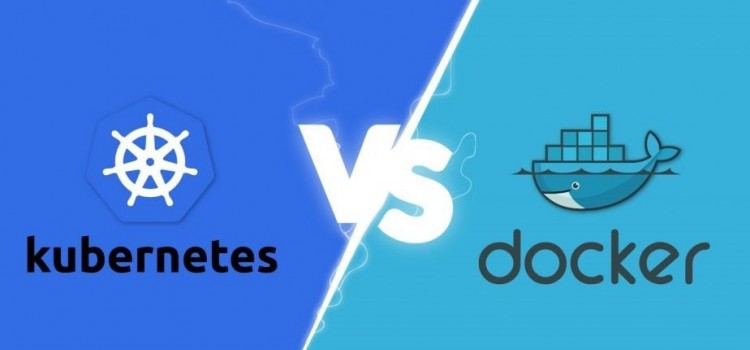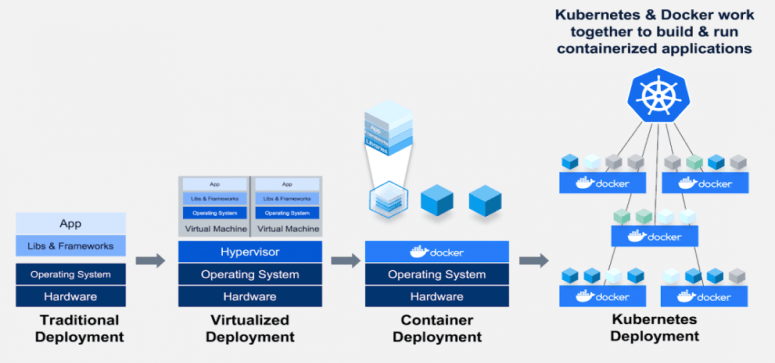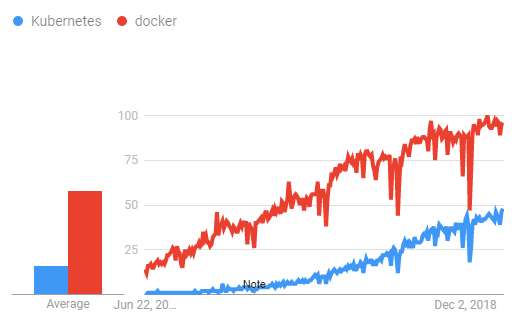Kubernetes vs Docker: Which is better?

Docker vs Kubernetes, a comprehensive primer
Kubernetes versus Docker is a prevalent topic and has been raised multiple times in the cloud-computing industries. Whether you have a non-technical background and only need a summary or jot down the finer points to make an important business or career decision, we hope this article will clarify your queries on this matter.
Before starting, you need to look beyond the puffery surrounding both of them. What these words mean is more vital to get a hold on before making business or career decisions on top of them.
The Symbiosis Between Docker and Kubernetes
The evergreen question, “What should I choose: Kubernetes or Docker?” is straightforward absurd, more like comparing apples with oranges. One is not an alternative for the other. On the contrary, Docker can run without Kubernetes and vice versa.
So, what’s the actual difference between Docker and Kubernetes?
Basically, Docker is standalone software, and it is used to run containerized applications by installing it on any computer. Containerization is a process of executing applications on an Operating System in a way to isolate that application from the rest of the system completely.
Kubernetes outdoes itself with Docker, so to speak. Now, if you have Docker installed adequately on multiple hosts (with different operating systems), you can easily leverage Kubernetes. These Docker hosts, also known as nodes, can be as simple as physical metal servers or even virtual machines.

Here are the two main reasons behind it:
- Making the infrastructure more robust and versatile: It will keep your application online, even when some nodes go offline, thereby providing high availability.
- Making your application even more scalable: If the workload on your application increases, you spawn additional containers or add more Docker Hosts (nodes) to the Kubernetes cluster.
So, Kubernetes is primarily used to automate the process of scaling, management, updates, and the removal of containers. In simple words, Kubernetes is known as a container orchestration platform. Although Docker is at the heart of the containerization process, it is responsible for us having containers in the first place.
The Tabulated Difference Between Docker and Kubernetes
Although both are completely independent of each other and can be used separately, we have compiled a tabulated list of differences between these two to make you understand the excellent points with clarity.
Docker vs Kubernetes
| Kubernetes | Docker |
|---|---|
| It is an ecosystem for managing clusters of Docker containers, which are also known as Pods. | This is basically a container platform that is useful for the configuration, distribution, and building of Docker containers. |
| Kubernetes is not a comprehensive solution in itself and needs the support of custom plugins to extend its functionalities. | Docker is a comprehensive solution, although it also uses its native clustering solutions for Docker containers, also known as Docker Swarms. |
| Kubernetes does not have an automated load balancing feature and needs to be set up manually to manage traffic between different containers in different pods. | Docker has an automatic load-balancing feature and manages the traffic between the containers in clusters automatically. |
| This has in-built tools for logging in and monitoring. | This does not have in-built tools and requires third-party tools such as ELK for logging in and monitoring. |
| It is scalable and fast in nature. | Docker is highly scalable and almost 5X times faster than Kubernetes. |
| Complicated installation, but a secure cluster after setup. | Easy installation as compared to Kubernetes, but the cluster is not strong enough. |
Google trends for Docker and Kubernetes

The Similarities Between Docker and Kubernetes
Kubernetes and Docker are both thorough solutions for intelligently managing containerized applications within a system and then providing robust capabilities. Both platforms are substantially different technologies.
These are some similarities that both Docker and Kubernetes have. Such as:
- Both have an affinity for microservices-based architectures.
- Both are open-source platforms.
- Both of them have a large part of the Go language, thus making it very easy to be shipped as lightweight binary codes.
- Both use YAML files (human-readable) to specify the application stacks and method of deployment.
Conclusion: Docker or Kubernetes!
Now that here you have learned a bit about the similarity and difference between Docker and Kubernetes, it is safe to say that comparing Kubernetes and Docker is just illogical. Both of them have their advantages and disadvantages, what makes it better or worse is actually the way you use it.
Hopefully, now you might not be swayed away with jargon and carefully look at the application to determine whether Kubernetes and/or Docker might be a good fit.
